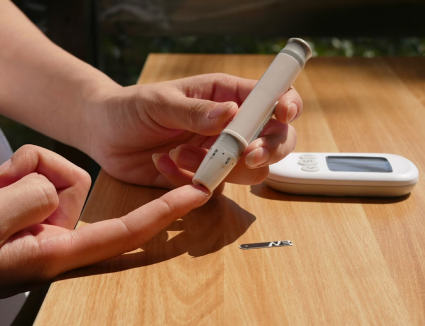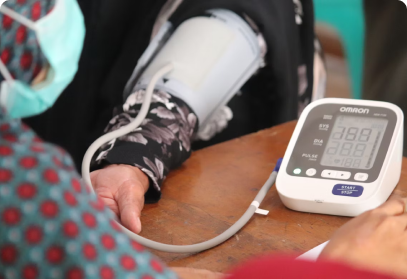Bone Health 101: How to Keep Your Bones Strong as You Age

Strong bones are essential for mobility, independence, and overall health. Yet, many people overlook bone health until problems arise, such as fractures or osteoporosis. Maintaining healthy bones throughout life can prevent complications, improve quality of life, and support long-term wellness. At City Care Clinic, we offer comprehensive bone health assessments, personalized treatment plans, and expert guidance to help patients maintain strong, resilient bones at every stage of life.
Why Bone Health Matters?
Bones provide structure, protect vital organs, and enable movement. They also store minerals like calcium and phosphorus, which are critical for bodily functions. As we age, bone density naturally decreases, making bones more susceptible to fractures and conditions such as osteoporosis.
Poor bone health can affect everyday life: even minor falls can result in fractures, leading to reduced mobility, long recovery times, and a loss of independence. Maintaining bone strength through diet, exercise, and preventive care is crucial for healthy aging.
Common Bone Health Issues:
1. Osteoporosis
Osteoporosis is a condition where bones become weak and brittle due to decreased bone density. It often develops silently, with fractures being the first visible symptom. Women, especially post-menopausal women, are at higher risk due to hormonal changes that affect calcium absorption and bone strength.
Symptoms:
- Fractures from minor falls
- Back pain due to vertebral fractures
- Loss of height over time
2. Osteopenia
Osteopenia is a precursor to osteoporosis, characterized by lower-than-normal bone density. Early detection can prevent progression to osteoporosis with proper interventions.
3. Fractures and Bone Injuries
Weak bones are more prone to fractures, particularly in the hip, spine, and wrist. Recovery from fractures in older adults can be challenging, highlighting the importance of preventive care.
Risk Factors for Poor Bone Health:
Understanding the factors that contribute to bone loss can help in prevention:
- Age: Bone density naturally decreases with age.
- Gender: Women are at higher risk, especially after menopause.
- Hormonal Changes: Reduced estrogen in women and testosterone in men affect bone strength.
- Lifestyle Factors: Smoking, excessive alcohol, sedentary lifestyle, and poor nutrition can weaken bones.
- Genetics: Family history of osteoporosis increases susceptibility.
- Medical Conditions: Certain medications or chronic illnesses can impact bone density.
Preventive Strategies for Strong Bones:
Maintaining healthy bones requires a combination of nutrition, exercise, and lifestyle choices.
1. Nutrition
- Calcium: Essential for bone structure. Sources include dairy, leafy greens, fortified plant-based milk, and almonds.
- Vitamin D: Helps the body absorb calcium. Sunlight exposure and supplements are important.
- Protein: Necessary for bone repair and maintenance. Include lean meats, legumes, and nuts.
- Other Nutrients: Magnesium, vitamin K, and zinc also support bone health.
2. Regular Exercise
- Weight-Bearing Exercises: Walking, jogging, and dancing stimulate bone formation.
- Strength Training: Lifting weights or using resistance bands strengthens bones and muscles.
- Balance and Flexibility Exercises: Yoga and tai chi reduce the risk of falls and fractures.
3. Lifestyle Modifications
- Avoid smoking and limit alcohol consumption.
- Maintain a healthy weight to reduce stress on bones.
- Ensure adequate sleep and stress management to support overall health.
Diagnostic Tests for Bone Health:
Early detection of bone loss can prevent fractures and other complications. At City Care Clinic, we offer:
- Bone Density Scans (DEXA): Measures bone mineral density to detect osteoporosis or osteopenia.
- Blood Tests: Check calcium, vitamin D, and other indicators of bone health.
- Risk Assessments: Evaluate family history, lifestyle, and medical conditions to determine fracture risk.
Treatment Options for Bone Health Issues:
If bone loss or osteoporosis is detected, several treatment options are available:
- Medications: Bisphosphonates, hormone therapy, and other medications strengthen bones.
- Supplements: Calcium and vitamin D supplementation tailored to individual needs.
- Lifestyle Interventions: Diet and exercise programs to improve bone density.
- Fall Prevention Strategies: Education and physical therapy to reduce fracture risk.
At City Care Clinic, we combine medical treatment with lifestyle guidance to ensure comprehensive bone care.
How City Care Clinic Supports Your Bone Health?
City Care Clinic provides a holistic approach to bone health:
- Personalized Assessments: Detailed evaluations of bone density and risk factors.
- Expert Guidance: Specialists provide nutrition, exercise, and treatment recommendations.
- Preventive Care: Routine check-ups to detect issues early and monitor progress.
- Patient Education: Teaching patients how to maintain strong bones through lifestyle and diet.
Our goal is to empower patients with the knowledge and tools they need to prevent bone-related problems and live a healthy, active life.
Conclusion:
Strong bones are the foundation of a healthy life. Preventing bone loss through proper nutrition, regular exercise, and routine screenings can help maintain mobility, independence, and overall wellness. At City Care Clinic, we offer expert assessments, personalized treatment plans, and comprehensive support to ensure your bones remain strong at every stage of life.
Take charge of your bone health today. Schedule a consultation at City Care Clinic and let our specialists guide you toward stronger, healthier bones for life.






.png)
.png)
.png)
.png)

.png)